How did two true firs and an Eastern White Pine come through our major ice storm? Come into my post and see!
Here's the first post on the Great Willamette Valley Ice Storm of 2016. I've already shown the effect of the ice on my Sequoia and Larch Trees and my Blue Spruce and Western Redcedar Trees. I'll be showing how the ice affected other trees in future photosets, too, including River Birch, Douglas-fir, fruit trees, and more.
Noble Fir
The Noble Fir (Abies procera) lives in the wild in the highest elevations here in Oregon. So Noble fir trees are capable of holding a heavy load of snow. But the trees are planted lower in the valleys for Christmas trees. The one in my yard is still pretty small, not even 5 feet tall yet. It wasn't bothered one bit by all the ice. It's more at risk from summer heat!
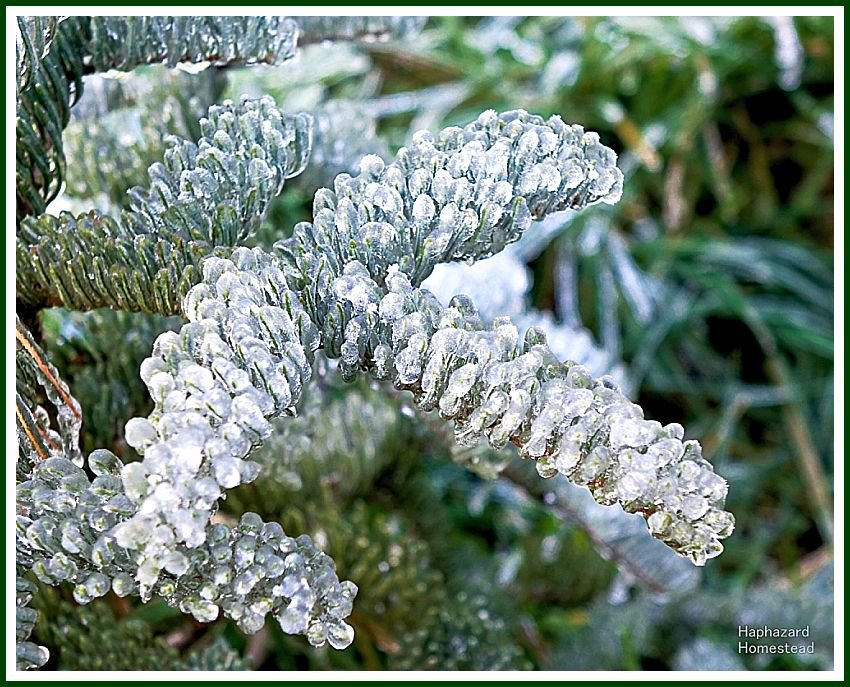
Grand Fir
The Grand Fir (Abies grandis) grows wild at much lower elevations here in Oregon, primarily in the lowlands along the coast of the Pacific Ocean. You can see that they don't handle the weight of the ice quite so well, even though there are fewer needles to be coated with ice.
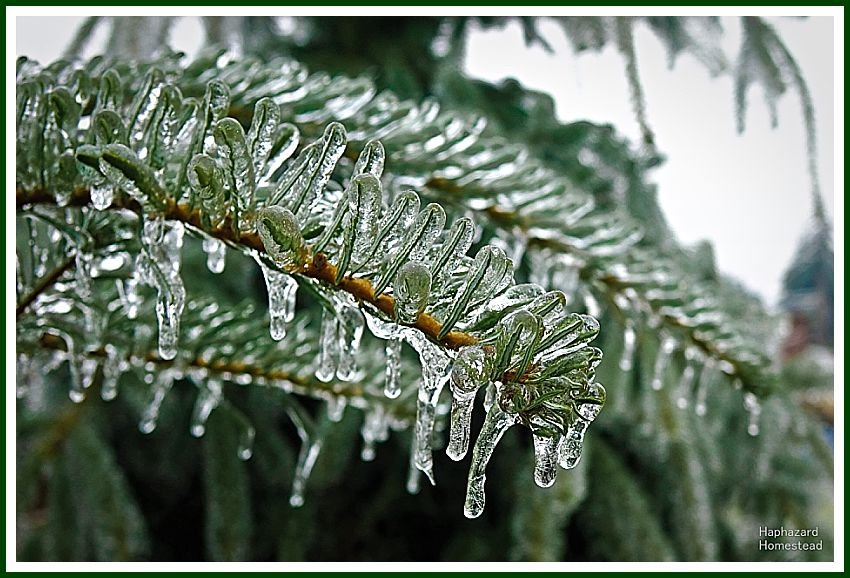
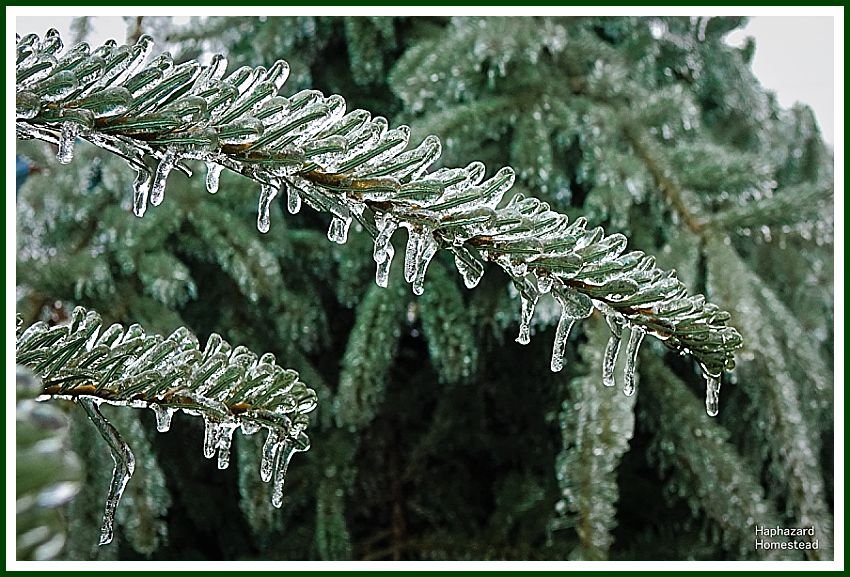
During our storm, the cold rain was freezing fast. You can tell from the air bubbles in the icicles. But you can also tell that some of the Grand Fir branches started drooping in several stages. The icicles don't hang straight, but are crooked - they were straight while they were being formed, but then the fir branches drooped, and the icicles kept on growing.
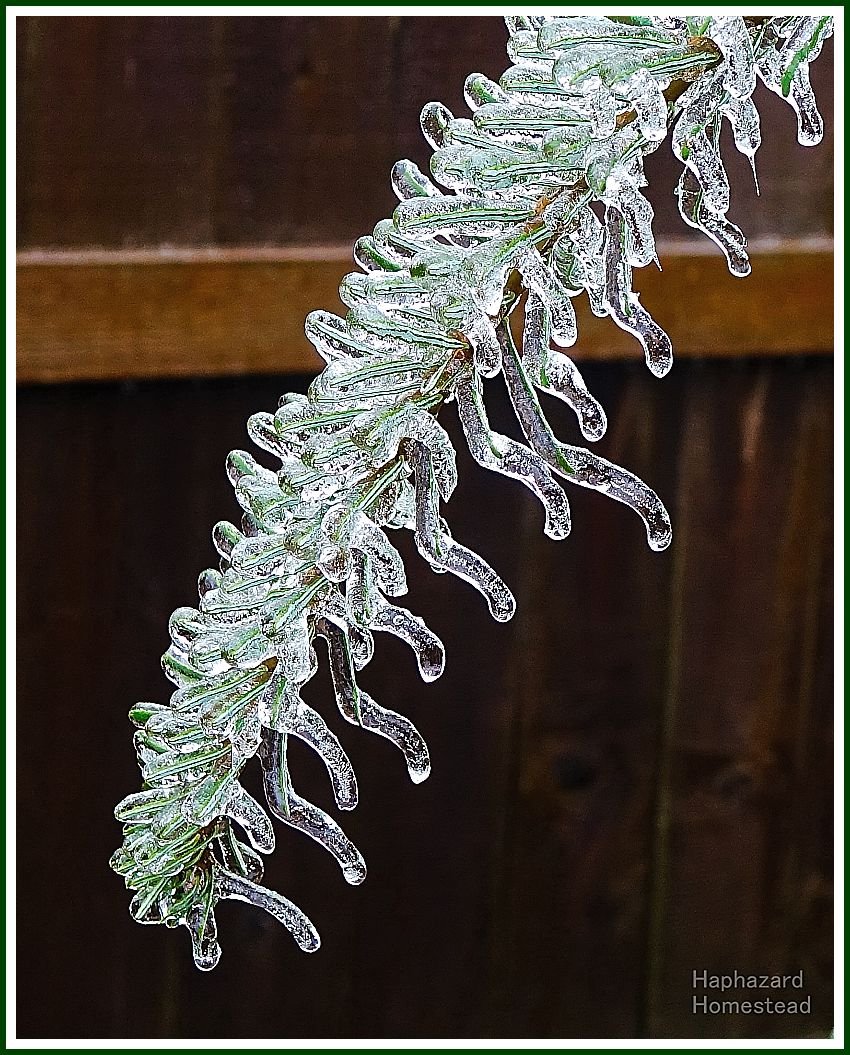
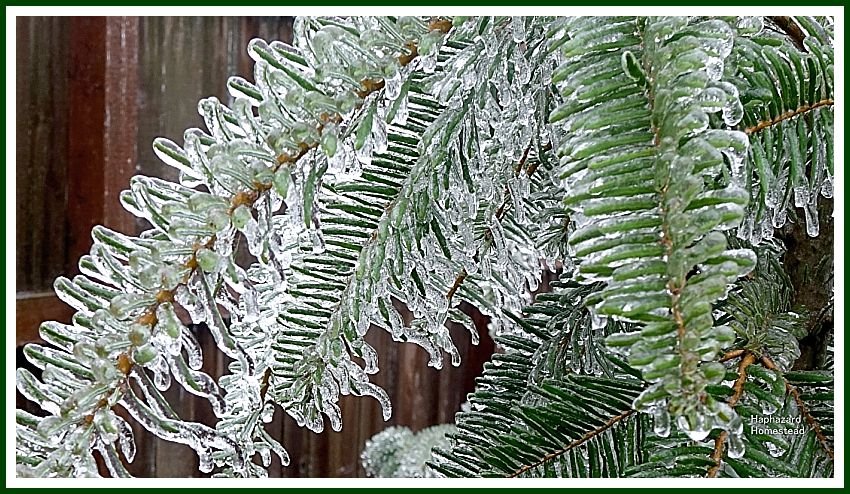
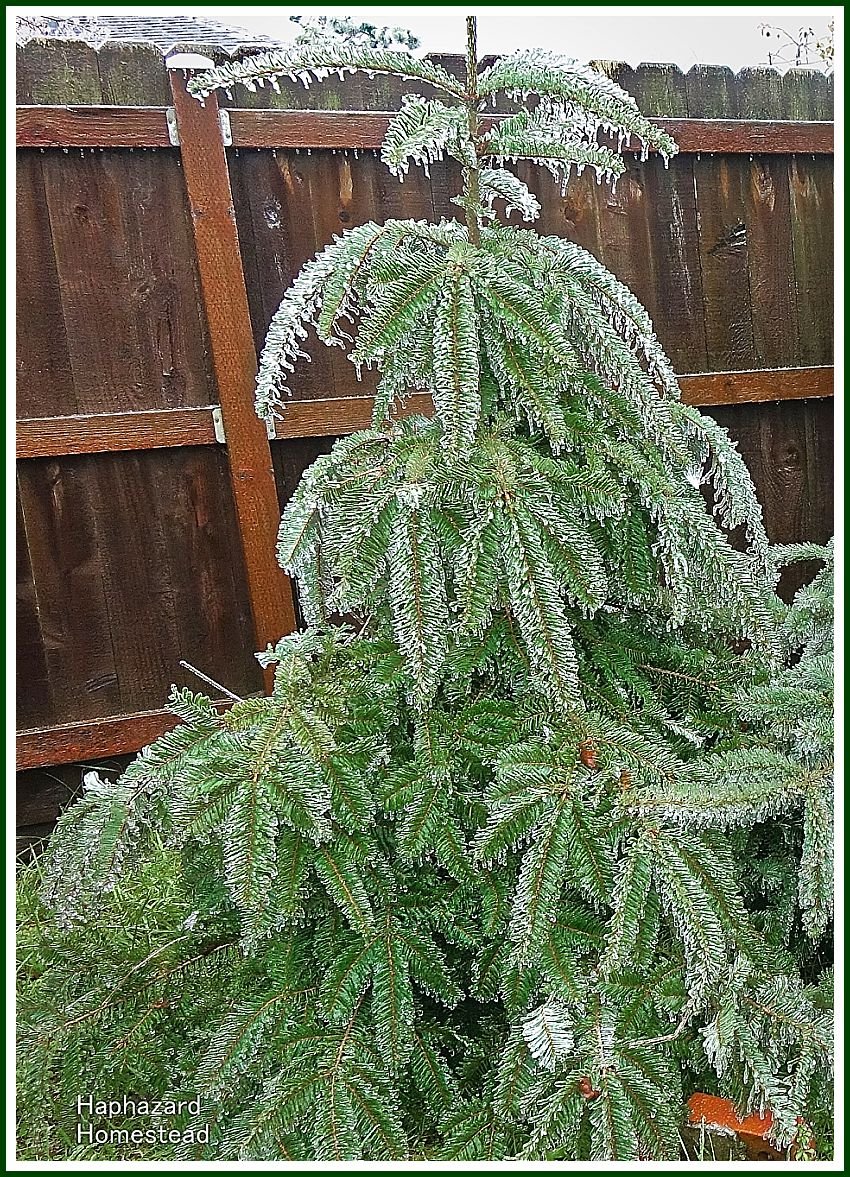
Eastern White Pine
Eastern White Pines (Pinus strobus) are native to eastern North America, not the Pacific Northwest. But I got this tree for free at a party. It was one of the table centerpieces, in a little pot. It is a hard-luck survivor of a tree! I'll write more about its challenges in a future post. But look what it experienced in this ice storm!
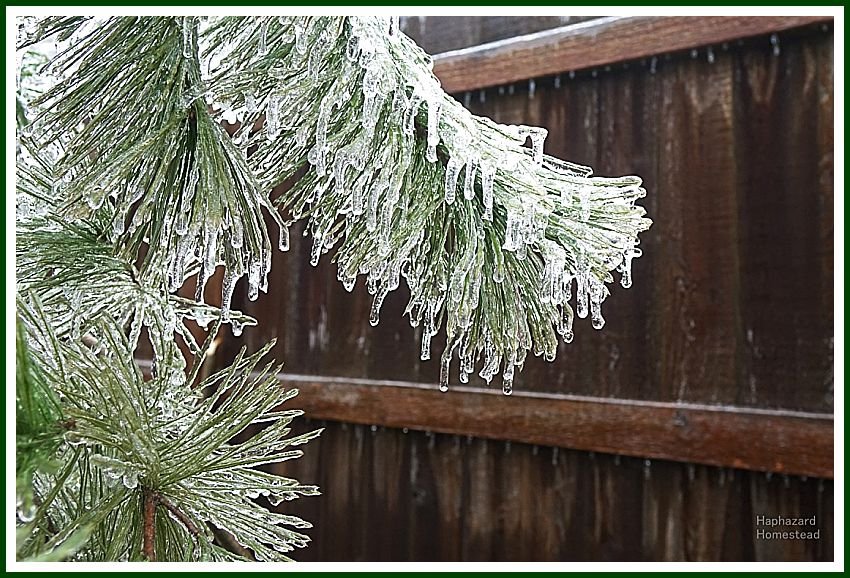
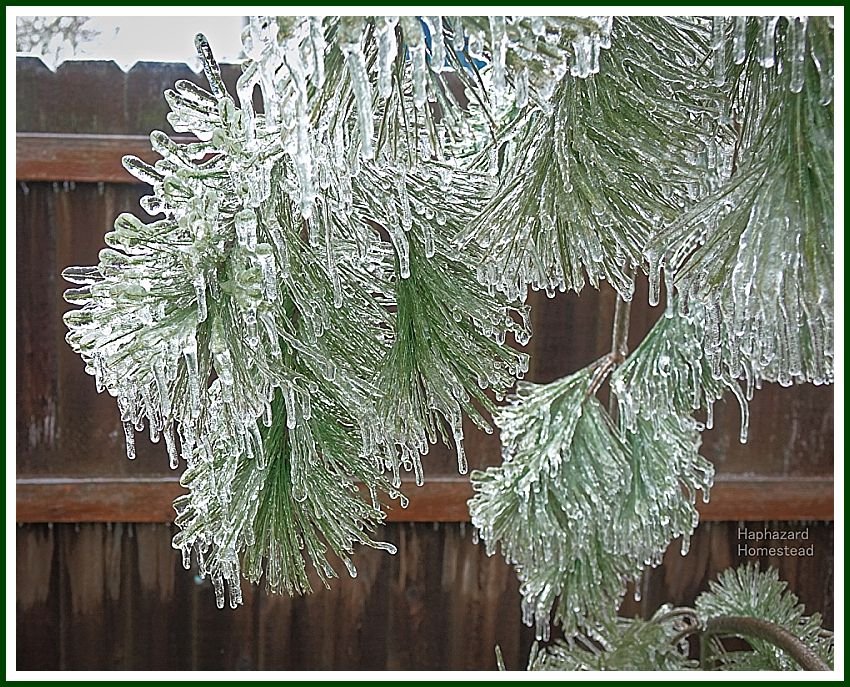
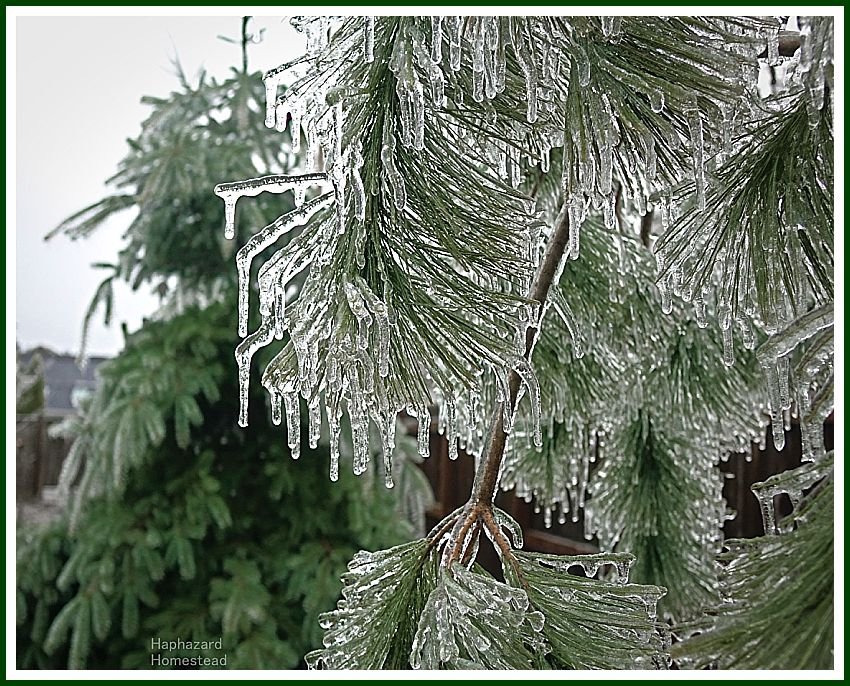
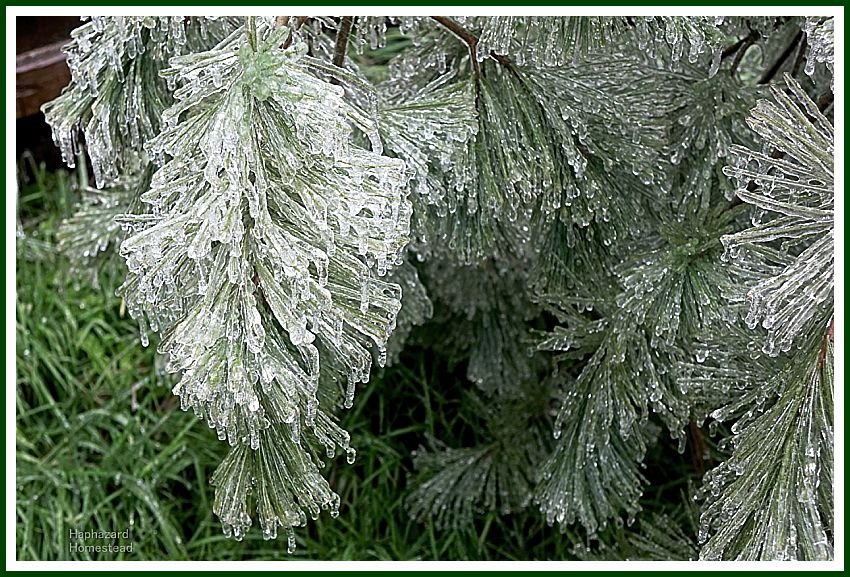
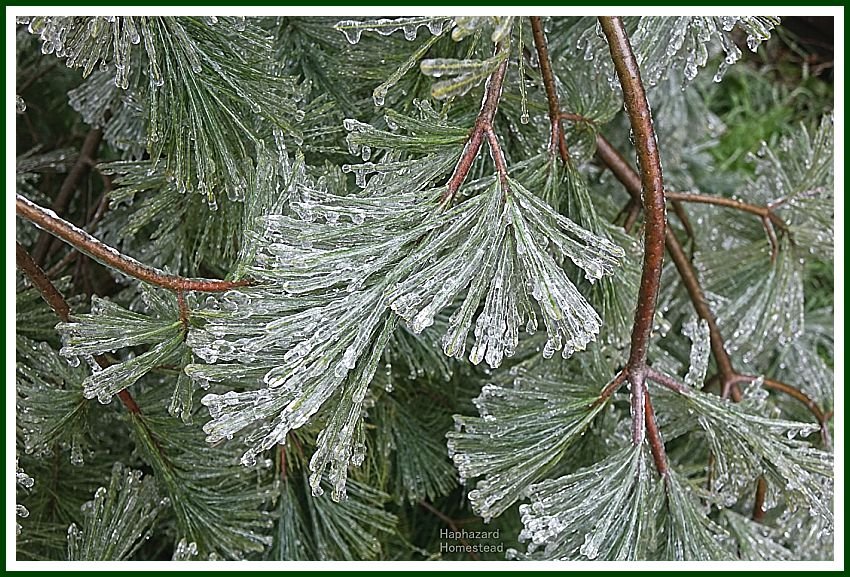
White pines have some of the thinnest needles of any pines. But they are long needles, and there are 5 needles in each bundle that comes off the branches. So, the branches held onto a lot of rain that froze into a heavy burden.
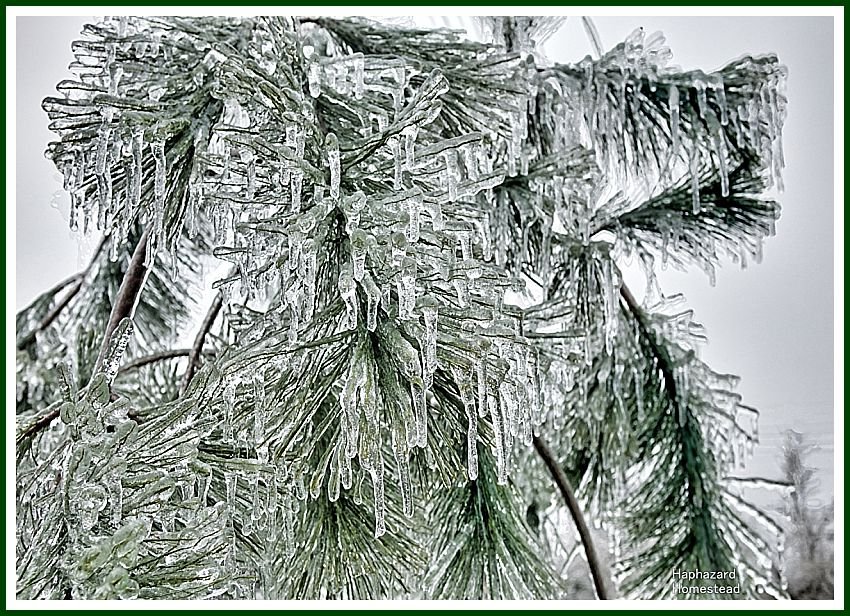
This ice storm was unusual because the ice didn't even start to melt for four days! The damage would have been a lot worse if a big wind had kicked up before the melt started. Even when we got some sun, temperatures were too cold for any melt. Finally, a warmer rain system moved in and the rain washed away all the ice.
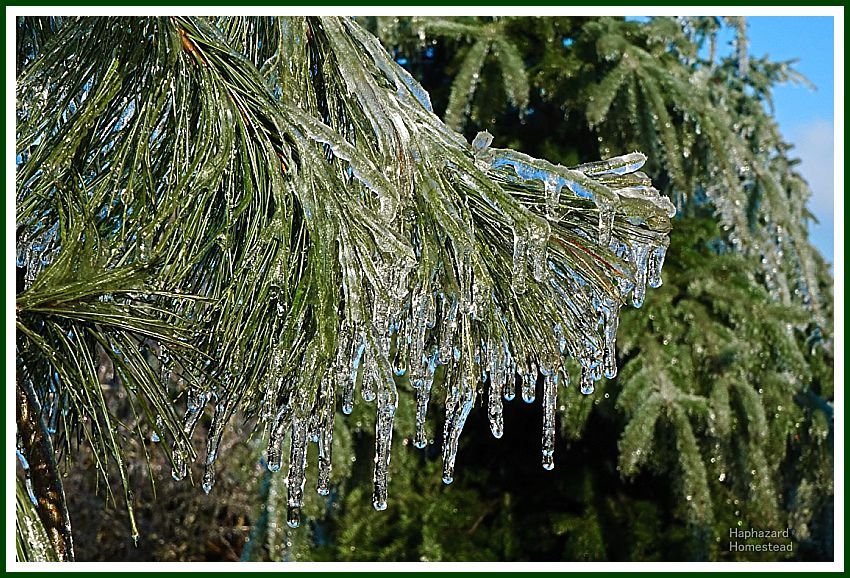
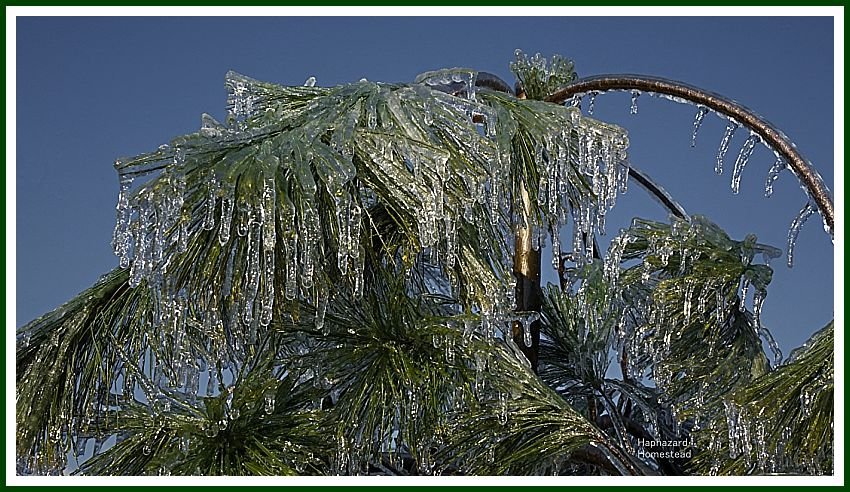
What do you notice about this last picture of the White Pine? There's no top of the tree any more! It didn't lose that in the ice, though. To find out what happened, you'll have to watch for a future post about this poor jinxed tree. But I am glad it survived this ice storm without any damage, even with all those icicles!
How Is Your Winter Going?
Have you had much ice or snow this winter? How have your trees handled the weather this winter?
Here's the first post on the Great Willamette Valley Ice Storm of 2016. I also have posts that show the effect of the ice on my Sequoia and Larch Trees and my Blue Spruce and Western Redcedar Trees. Follow me to see more ice storm photosets, including the effect on other kinds of trees and plants, and more!
Haphazard Homestead
*** foraging, gardening, nature, simple living close to the land ***
All content is 100% Haphazard Homestead - photos and all!
I participate in Operation Translation. All my posts are available for translation under the rules listed on the linked post from @papa-pepper. Logo provided by @oepc85. Post goes 100% to Steem Power! Logo provided by @merej99

*** foraging, gardening, nature, simple living close to the land ***

